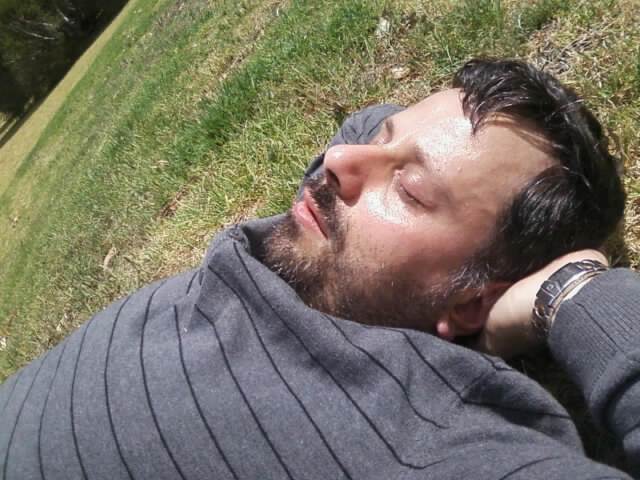I refer you to The Still-Alive Poets Society blog here.
Here’s a cycle from me, from 2010.
I: May
As if I was the first
To sail beyond the west,
Fall off the end of Earth,
Sink, swim, and gasp for breath.
As if no man knew thirst,
Before I stopped to rest
Beside the spring; or birth,
Before I heard of death.
Beyond the west: each day
A year, each step a road.
Winding to the unknown.
Roads trod by mortal clay
A thousandfold. A ride
I’ve hitched now. By your side.
II: May
This fulsomeness, this loveliness, this care,
This playfulness, this trust and troth laid bare,
This passion, this impulsiveness, this shock,
This pressing—this inexorable lock,
These waves and curves, this storm of skin and hair,
This push and pull and pause, this fear and dare,
These shades, dim monochrome, that sway and rock,
This stillness, lulled at by the ticking clock,
All this you teach me. All of this you hold.
All this I witness with you. Watch it flow,
Like mercury, like phlogiston, like gold.
This Here-and-Now, this Hence, this Old Made New,
This secret that not even we can know,
This you and I have claimed.
It’s half past two.
III: May
So, there’s this girl. Unruly, quite the knave.
Will not stay put. Does what she damn well will.
Frets that she’ll fall asleep if she stands still.
Makes mirth of solemn stuff. Derides the grave.
So there’s this girl. Can’t take her anyplace.
Won’t talk on tragedy. Will not wear frills.
Talk French cuisine, she’s running for the hills.
And laughs at me about it to my face.
So there’s this girl, who’s got me all worked out,
piercing my artifices and my doubt.
And still stays put, and won’t go anywhere.
What do I do with her? What has she done,
To make my reason and my pomp go dumb?
How have I come to earn reproof so fair?
IV: August
Grace pooling from above. Grace trickling down.
Grace mingling with the common and the base,
Granted unbidden, and divulged unbound.
Grace that suffuses all, for gain or waste.
Grace filling puddles, muddying the ground,
In which the errant wretch begrudged his haste:
Splashed past his shins, only to end up drowned
In startling, blinding, and uncalled for Grace.
Thy grace, thy charm, thy steadfastness, thy blithe
And easy gait: I, far from thee and these
Behold and cannot fathom. Where these thrive,
Where thou hast joy, I hear of now and then:
Reports of floods and mud that boil and freeze
And thaw, and bring this world to grace, and mend.
V: October
Each year Adonis dies, pierced by the boar.
Each year the maidens bear him, singing dirges,
To a tomb. Adonis each new year emerges
To live again, eager to hunt once more.
Each year the black earth, bound in snow, and sore
With grief, bewails its loss in crystal churches.
Each year, Lent breaks: up from the ground life surges
Anew, to bloom, to fade, to exult, to mourn.
Each week, each day, we dance, and draw apart,
And back again; we stop, we spin, we start,
We try anew. It works, it fails, it muddles.
Each time, we don’t know that the Spring will come.
Each time, we know that soon the frost will numb
Our hands. Yet still a flame glows, where we’ve huddled.
VI: November
The cold has come. The stony showers flood
Blurred memories of one-time warmth, as brusque
As Melbourne weather. Now a bleary dusk
Alone recalls the sun, in faded blood,
Soon to grow dark. These feet pass through the mud,
Their pace agnostic, doubting. A boar’s tusk,
They’d wailed, has struck. But pilfered myths won’t mask
That chill that numbs its prey, and binds it shut.
Now stories leech away. I never sailed
Beyond the west; the storm at half past two
Was merely rain, and bore no grace. I failed
To hear their music. Now they’ve fallen dumb,
Too drained to praise a summer that was due
To pass. And so it sets.
The cold has come.


